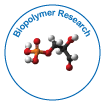Unsere Gruppe organisiert über 3000 globale Konferenzreihen Jährliche Veranstaltungen in den USA, Europa und anderen Ländern. Asien mit Unterstützung von 1000 weiteren wissenschaftlichen Gesellschaften und veröffentlicht über 700 Open Access Zeitschriften, die über 50.000 bedeutende Persönlichkeiten und renommierte Wissenschaftler als Redaktionsmitglieder enthalten.
Open-Access-Zeitschriften gewinnen mehr Leser und Zitierungen
700 Zeitschriften und 15.000.000 Leser Jede Zeitschrift erhält mehr als 25.000 Leser
Indiziert in
- Publons
Nützliche Links
Open-Access-Zeitschriften
Teile diese Seite
Abstrakt
Clinical, Imaging and Pathological Characteristics of Brain Implanted Polylactic Co-Glycolic Acid Polymers Conjugated with Temozolomide
Jill Hicks, Simon Platt R, Shannon Holmes P, Elizabeth Howerth, Allison Haley, Jared Kaplan M and Edward Kaplan J
Definitive treatments for primary brain tumours are still sought. Slow- release local chemotherapy may provide a good effect and poly (lactide-co-glycolide) (PLGA) micro cylinders could allow this. We evaluated the neurological and histopathological consequences, and MRI visibility, of PLGA micro cylinders conjugated with Temozolomide and gadolinium implanted in normal canine brains. Eight purpose-bred beagles had cerebral implantation of micro cylinders combined with Temozolomide and gadolinium. MRI was performed following implantation and 28d later prior to necropsy and brain histopathology. All adverse events were associated with implantation and resolved. Dogs with six micro cylinders at 0 and 6.25% gadolinium had mild inflammation and all other dogs had greater brain inflammation, which increased with higher gadolinium concentrations and micro cylinder number. Micro cylinders with gadolinium were identifiable on MRI. Brain implantation of PLGA micro cylinders conjugated with gadolinium and Temozolomide is tolerated in healthy beagles. The lowest gadolinium percentage and micro cylinder number should be used if this therapy is pursued
Zeitschriften nach Themen
- Allgemeine Wissenschaft
- Biochemie
- Chemie
- Genetik und Molekularbiologie
- Geologie und Geowissenschaften
- Immunologie und Mikrobiologie
- Klinische Wissenschaften
- Krankenpflege und Gesundheitsfürsorge
- Landwirtschaft und Aquakultur
- Lebensmittel & Ernährung
- Maschinenbau
- Materialwissenschaften
- Medizinische Wissenschaften
- Pharmazeutische Wissenschaften
- Physik
- Sozial- und Politikwissenschaften
- Umweltwissenschaften
- Veterinärwissenschaften
Klinische und medizinische Fachzeitschriften
- Anästhesiologie
- Augenheilkunde
- Betrieb
- Dermatologie
- Diabetes und Endokrinologie
- Gastroenterologie
- Genetik
- Gesundheitspflege
- Immunologie
- Infektionskrankheiten
- Kardiologie
- Klinische Forschung
- Medizin
- Mikrobiologie
- Molekularbiologie
- Neurologie
- Onkologie
- Pädiatrie
- Pathologie
- Pflege
- Toxikologie
- Zahnheilkunde

 English
English  Spanish
Spanish  Chinese
Chinese  Russian
Russian  French
French  Japanese
Japanese  Portuguese
Portuguese  Hindi
Hindi